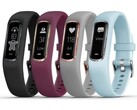It’s not surprise that stress can be related to the type of content we consume on a daily basis, be it through social media posts, YouTube videos, or news. Smartphones, smartwatches, and health tracking devices currently available in the market can track screen time, sleep quality, and other health metrics, but they cannot identity what stresses you out. Google is working on addressing just that with the use of AI and health metrics from various devices.
As reported by Neume in collaboration with David from @xleaks7, Google has a patent that aims to detect stressful content with the help of AI and health markers. It essentially uses data monitored by smartwatches including heart rate or skin response and links it to the content that is being viewed in the moment, with the help of AI. The patent states AI is used to look at words on screen and deem them positive, negative, aggressive, etc. It looks at videos and labels them as well. The content is sorted based on themes like politics, entertainment, sports, etc. which helps it identify what typically raise stress.
Additionally, AI converts health data into numbers and compares them to the content being viewed. Of course, it learns overtime and adjusts according to an individual’s personal stress triggers. This helps the system predict stress and lets the user take the necessary action. All the data is kept on device, privately.
The patent also states that while the user can decide what apps are monitored, the AI uses data from wearables, earbuds, or smartphones to find patterns of stress. It also asks the user for confirmation to ensure they actually feel stressed. When stressful content is detected, it notifies the user who can then block similar content from showing up in the future.
At this point, it is unclear what stage of development this system is in. The link to the patent shared by Neume has expired but this Google patent seems to be what the report is referring to.























